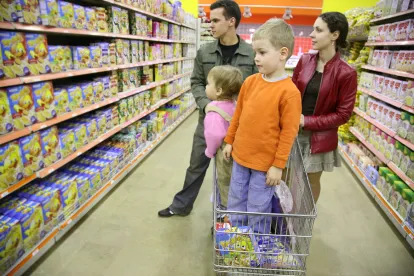In the early stages of the COVID-19 pandemic, inconsistent reports claimed everything from children being immune to COVID-19 to children being more vulnerable to the virus to children acting as asymptomatic carriers. More recently, the CDC has reported that “[w]hereas most COVID-19 cases in children are not severe, serious COVID-19 illness resulting in hospitalization still occurs in this age group.” The CDC’s latest guidance states that not only can children contract the virus, but the “prevalence of asymptomatic SARS-CoV-2 infection and duration of pre-symptomatic infection in children are not well understood.” It seems clear that like asymptomatic adults, asymptomatic children have not, at this time, undergone mass testing.
At the same time, minors are and will remain in a part of the workforce. The number of minors in the workforce may even increase due to closed schools, economic need, and the demand for ongoing hiring in critical infrastructure sectors even while other businesses have been forced to close on a temporary or permanent basis. Many states across the country have closed their schools as a result of COVID-19. Schools may reopen at varying times as the pandemic continues to evolve. At the same time, unemployment rates have increased and more applicants have turned to unemployment insurance benefits for relief. As minors file for work permits and reach out to school administrators for assistance in obtaining employment, employers may see an increase in minors applying for jobs, especially in critical frontline roles, such as grocery retail. Employers that are hiring minors for these roles may want to brush up on their knowledge of the nuances of employing minors, especially as local, state, and federal laws continue to evolve in response to COVID-19.
Federal and State Law Requirements
State laws vary greatly as to what jobs minors can hold and in what industries. In addition to prohibited industries and jobs, state laws may include work hour restrictions, implicate truancy laws, and govern the ability of minors to enter into legally binding contracts, including if they can operate as independent contractors.
On the federal level, the Fair Labor Standards Act includes child labor provisions enacted to ensure that when young people are employed, the work is safe and does not jeopardize their health, well-being, or educational opportunities. The U.S. Department of Labor (DOL) has made general guidance available as well as fact sheets and frequently asked questions (FAQs) targeted at specific industries such as grocery retail and healthcare. The Occupational Safety and Health Act imposes child labor safety standards that govern their roles and job tasks, in addition to general workplace safety standards where minors are present in the workforce, even as temporary workers. The U.S. Equal Employment Opportunity Commission (EEOC) also provides guidance on Title VII of the Civil Rights Act and other laws to youth and employers alike. Employers may wish to incorporate guidance or training anecdotes that help avoid comments or conduct aimed at youth workers who may be silent carriers of COVID-19.
Work Permits and Age Certifications
Minors must obtain a permit to work in numerous states. State laws require different documentation authorizing minors to work. Although states usually issue proof-of-age certificates for minors to obtain employment, the DOL can also issue age certificates upon request. Current economic circumstances and school closures do not allow employers to bypass stringent permit processes in order to employ minors during the pandemic unless these requirements are revised by the applicable government authority. At the same time, school officials may be more willing to substitute simple letters of approval to allow minors to work during the pandemic in lieu of filing official forms.
According to the DOL, “possession of an age certificate constitutes a good faith effort to comply with minimum age requirements.” Some state agencies, such as the Pennsylvania Department of Education, have modified the process for minors obtaining work permits in light of COVID-19 and the mandatory closure of schools. However, most states have not modified their requirements. Employers may want to continue to require all state-mandated permits and age certificates. On its website, the DOL provides a helpful map of state requirements.
COVID-19 Temperature Screening
For adult employees, the EEOC has clearly stated that although taking an employee’s temperature would ordinarily constitute a “medical examination” under the Americans with Disabilities Act (ADA), “employers may measure employees’ body temperature” in order to limit further spread of COVID-19. Though such temperature checks may be permissible under the ADA, the EEOC is silent as to conducting these tests on minors. Generally, state laws require employers to obtain parental consent before conducting medical examinations on minor employees.
State law exceptions to receiving parental consent for medical examinations also greatly differ depending on the jurisdiction. These exceptions for consent to medical examinations or treatment generally fall under a few categories:
- Multiple states, including Arizona and Colorado, allow minors who are married to provide consent.
- States such as Alabama allow minors to provide consent once they reach age 14.
- Some states clarify that minors who are either pregnant or have children can consent to medical exams on their own behalf and for their children.
- If applicable, minors who have been legally emancipated and are independent from their parents may be able to consent to medical exams.
- Some state laws provide clear exceptions for homeless minors.
Due to the nuances in state laws regarding medical examinations for minors, employers may wish to request or require parental consent for minor employees before conducting temperature checks. Additionally, the implementation of consent forms can be another tool to limit liability while providing work for out-of-school minors during the COVID-19 pandemic. Employers may want to draft consent forms to fit the specific requirements of individual jurisdictions. The core characteristics of these consent forms may include: reference to applicable orders or guidance related to COVID-19; signed acknowledgement from the parent and/or the minor employee; and clear language indicating that the parent/guardian consents to the temperature check.




 />i
/>i

